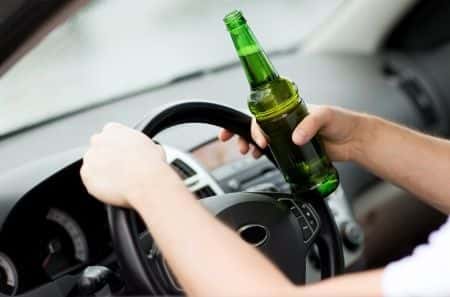A restaurant/bar security expert witness advises on a case involving a driver who left a club after drinking alcohol for six hours. A short distance from the club, the man crossed the center line and struck another vehicle head-on. The crash seriously injured the other driver and two of her passengers, and killed a third passenger. His serum alcohol concentration (BAC) was 0.226% one hour after the collision, nearly three times the legal limit.
The families of the victims sued the driver and the club that served him.
Question(s) For Expert Witness
1. What was the standard of care?
2. How was it violated?
3. What alternative actions would have been appropriate?
Expert Witness Response
The all-you-can-eat-and-drink event at the club included self-serve beer stations. Not only was there no one from the club monitoring the beer stations, there was no one assigned to walk the floor to monitor patrons for signs of intoxication, nor was there any police or other security hired to carry out this task. Some club officers in attendance at the planning meeting could not recall anything being mentioned concerning monitoring patrons. At a minimum, no one member was specifically assigned to monitor the beer stations or the crowd. Thus, the patrons were largely unmonitored in all phases of the event.
The defendant driver was seen drinking at least 10 beers during the event. Witnesses testified that he “drank like a fish” and exhibited bloodshot eyes, loud and obnoxious behavior, slurred speech, and staggering gait. He even admitted that he was drunk. At no time throughout the event did anyone from the club ever approach him to assess his behavior, inquire as to how much liquor he had consumed, suggest that he slow the pace of his drinking, offer or suggest food to him, direct that he have no more alcohol, or remove him from the premises or offer to provide him with a ride home.
The club had essentially no alcohol policies and practices except for one piece of paper that stated a single generic rule about handling intoxicated guests promptly and safely. There was no evidence that any personnel were certified by any recognized alcohol training programs. Nor did the club follow any of the alcohol safety programs provided by its parent organization or the directives of their liability insurance carrier.
Since 1982, the alcohol beverage industry and its regulators have made responsible alcohol service a priority in the United States. The industry has developed several different responsible alcohol server/seller programs to address the issues of underage drinking, drunk driving, and drunkenness. All of these programs advocate responsible alcohol server training in a classroom setting with a focus on a practical section to teach the implementation of those standards. The industry makes it clear that, regardless of the size of or type of the establishment, serving alcohol responsibly is the standard.
The conduct of the club, taken as a whole, was outrageous and showed reckless disregard for the well-known dangers presented by the irresponsible service of alcohol. Any reasonably trained or attentive alcohol server should have immediately seen these signs of evolving intoxication and stopped the service of alcohol to him. The club’s failure to have properly trained and certified employees no doubt played a direct role in their failing to observe and react to the driver’s visible intoxication.
About the author
Kristin Casler
Kristin Casler is a seasoned legal writer and journalist with an extensive background in litigation news coverage. For 17 years, she served as the editor for LexisNexis Mealey’s litigation news monitor, a role that positioned her at the forefront of reporting on pivotal legal developments. Her expertise includes covering cases related to the Supreme Court's expert admissibility ruling in Daubert v. Merrell Dow Pharmaceuticals Inc., a critical area in both civil and criminal litigation concerning the challenges of 'junk science' testimony.
Kristin's work primarily involves reporting on a diverse range of legal subjects, with particular emphasis on cases in asbestos litigation, insurance, personal injury, antitrust, mortgage lending, and testimony issues in conviction cases. Her contributions as a journalist have been instrumental in providing in-depth, informed analysis on the evolving landscape of these complex legal areas. Her ability to dissect and communicate intricate legal proceedings and rulings makes her a valuable resource in the legal journalism field.



